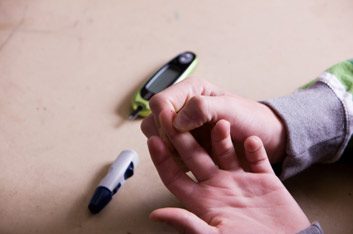
Drink with care
Is there room for alcohol in your diet if you have diabetes? Perhaps, if you are particularly vigilant about its use. The first problem with alcohol is that it lowers blood sugar levels due to its effect on the liver. The second is that it is high in calories-almost as high as fat-but with few nutrients. If you get the green light from your health-care team that it is okay to drink on occasion, here are some useful tips.

Pair alcohol with food
Food acts like a sponge, helping to absorb some of the alcohol and in turn minimizing its effect on blood sugar. Likewise, sip your drink slowly to further slow absorption. A person with diabetes should always eat carbohydrate foods when drinking alcohol, and never drink on an empty stomach.

Don’t drink when your blood sugar is low
By taking consistent daily blood sugar readings, you will be in a much better position to make an intelligent decision about whether to drink. If your blood sugar is already low, there is no need to cause more problems by drinking.

Moderation is best
There are fewer risks to your diabetes, and possible benefits, by keeping to current guidelines: No more than one drink per day for women, two per day for men. But be sure your diabetes is well controlled. If weight loss is a goal, drinking may hinder progress, so discuss this with your health-care team.

Keep the mixers calorie-free
If you choose hard liquor, watch out for added calories due to the mixers. Stick with club soda, mineral water, diet soft drinks, Bloody Mary mix, or coffee for hot drinks.
